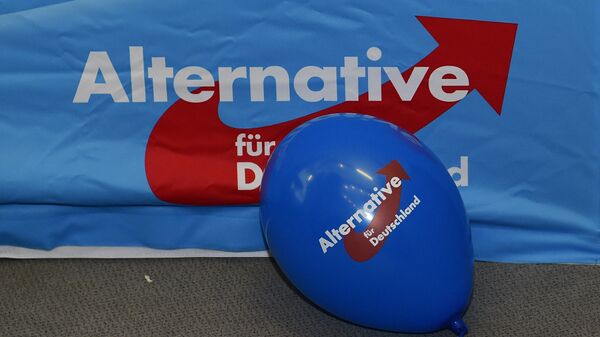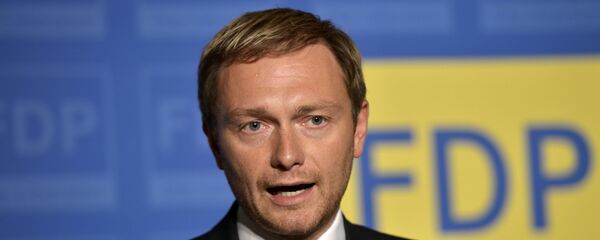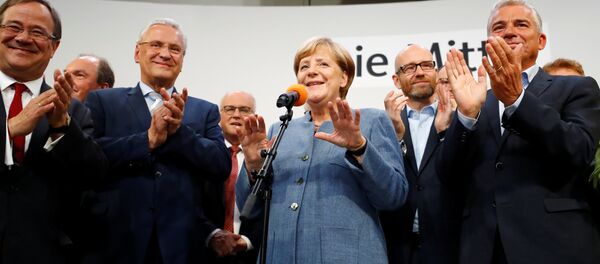Kristian Rouz – After the Alternative for Germany (AfD) party won a surprising 13.5 percent of the vote in this past weekend’s general election, expectations of structural changes in the German economy stirred market uncertainty, sending the euro lower.
AfD derived its strength from its solid anti-mass migration platform; it favors an aggressive expansion in domestic manufacturing and is poised to be the second-most prominent political force in Germany after Chancellor Angela Merkel’s ruling coalition (between the CDU/CSU and SDU).
However, some industries are unhappy with the AfD electoral win, as they are eyeing a narrower chance at exploiting the cheaper mass-migration workforce and thus lower profit margins.
“The retreat into nationalism is no alternative for our country. We need massive investments in Germany in light of the run-down roads, inadequate digital infrastructure and many shortcomings in education,” Dieter Kempf of the industry group BDI said.
On the other hand, Germany's new ruling coalition is expected to introduce a massive fiscal stimulus package, a set of measures closely associated with contemporary right-wing politics, and aimed at bolstering domestic output.
“In these difficult times, we need a stable government and a coalition agreement that focuses on investment and the key issues of the future — infrastructure, education, research, and innovation,” Eric Schweitzer of DIHK Chambers of Industry and Commerce said.
Merkel’s fourth term is poised to be defined by an expansion in national exports, and tougher competition between Germany and the US is the most apparent projection. The race of currency devaluations between the euro bloc and the US will shape the world currency trading landscape for years to come.
Both of the nation's largest parties have been greatly discredited, as evidenced by the election result, as neither of them has proven able to tackle the existential challenges the nation faces, including radical Islamic terror, ethnic crime (such as honor killings and a surge in rapes). The Christian Democrats won 34.5 percent of the vote, while their traditional opponents, the Social Democrats, won just 21.6 percent, just 8 percent above the ‘outsider’ AfD result.
Merkel’s political party has shown its worst result since 1949, meaning she will have to rely on the AfD to remain in power and lead a sustainable cabinet.
The euro slipped 0.4 percent after the results came in, and is poised for a further slide, as the AfD have their own proposals for the reform of the economy. Their proposed measures will include an infrastructure package and lower taxes, similar to those proposed by US President Donald Trump, and measures discussed in the post-Brexit UK.
"Public spending has been cut; many public services have fallen victim to the red pen or have been privatized. Surcharges have been raised and user fees have been introduced," the German motorists’ club ADAC says, expressing harsh criticism of Merkel and her previous major-party coalition.
Another reason for AfD’s win that fuels reform expectations are the contraction of the German middle class in the past years, which has resulted from inept major-party policies.
"The 'middle-income range' is being sandwiched, so to speak," a report from the Institute for Work, Skills, and Training (IAQ) at the University of Duisburg-Essen reads.
The report also found an ongoing contraction in wages and the rising share of hard-up individuals. "Overall, these findings indicate growing income inequality," the report says.
Germany has one of the largest low-wage sectors in all of Europe, with roughly 23 percent of workers working earning wages which are insufficient to cover their cost of living.
The rise of AfD, motivated by these factors, gives Germany a chance at overcoming the structural weaknesses in its economy, as well as making Germany a safer and more sustainable living environment.




